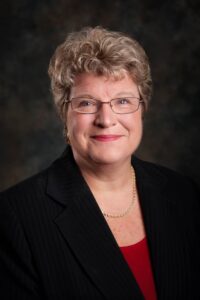Physician Leaders Practicing Administrative Medicine Should Become Board Certified, According to Judy L. Smith, MD, MS, CPE, FACS
 Physician leadership is critically important as health care evolves. Consider this from the television show “The Daily Briefing” on January 4, 2017: “What many top-ranked hospitals have in common: Physicians in the C-suite”. A 2011 study of the 100 best hospitals (as ranked by U.S. News & World Report) for cancer, digestive disorders, and cardiovascular care showed that hospitals run by physicians scored 25% higher on overall quality than those run by professionals with management backgrounds.
Physician leadership is critically important as health care evolves. Consider this from the television show “The Daily Briefing” on January 4, 2017: “What many top-ranked hospitals have in common: Physicians in the C-suite”. A 2011 study of the 100 best hospitals (as ranked by U.S. News & World Report) for cancer, digestive disorders, and cardiovascular care showed that hospitals run by physicians scored 25% higher on overall quality than those run by professionals with management backgrounds.
A physician’s clinical knowledge, when combined with leadership skills, can significantly effect change and transform health care. Physicians know and understand quality and safety on a personal level; defects in quality affect people with whom they have a direct relationship. They understand healthcare operations intimately, including the difficulties that patients, front-line healthcare workers, and the support staff have in making sense of how care is delivered. They understand the struggles and motivating factors for other physicians and colleagues. Efficiency is not just a “corporate imperative” but also a personal and professional duty. The lives of the physician’s family, patients, and the entire team depend on the practice and its ability to be fiscally prudent and financially secure.
Add the medical culture of research, education, and innovation to these clinical and operational skills and a powerful opportunity to create profound and beneficial changes emerges: the Physician Leader.
Leadership opportunities for physicians have expanded greatly over the past few decades. Clinical team leader, department chair, division chief, training directors, chief medical officer, VPMA, and other medical directorships are still critical roles in which many physician leaders excel and have a positive impact on health care. Newer or less traditional roles now count physicians in their ranks. Physician leaders are now found in all of the roles of the C-Suite both in hospital and insurance systems. Physicians hold the titles of CEO, CFO, COO, and many others.
Physician leadership is not for everyone. Once you decide you want to explore leadership opportunities you will need to learn new skills that may include finance, human resources, operations, quality and safety, quality improvement, strategy, and health law. Achieving an advanced degree (MBA, MMM, or similar) is the most effective and most common route but will take time from family and friends and can be challenging while also practicing medicine.
Physician leaders must understand and be comfortable in a new environment and culture. The move from a clinical team/practice to a corporate or departmental organizational structure can be jarring and difficult, but also enlightening, empowering, and exciting!
Once you have made the leap to becoming a physician leader, it is important to have recognition. For physicians, board certification demonstrates excellence and commitment to one’s specialty. Administrative medicine is in fact a specialty for which you have worked hard and gained specialty training. The American Board of Administrative Medicine (ABAM) through the American Board of Physician Specialties® (ABPS) provides nationally recognized board certification.
If you’re a physician leader interested in become board certified in administrative medicine, contact the ABPS. Board certification with the ABAM can provide your medical and administrative colleagues with the assurance that you have the knowledge, commitment, and background to excel in a leadership role.










